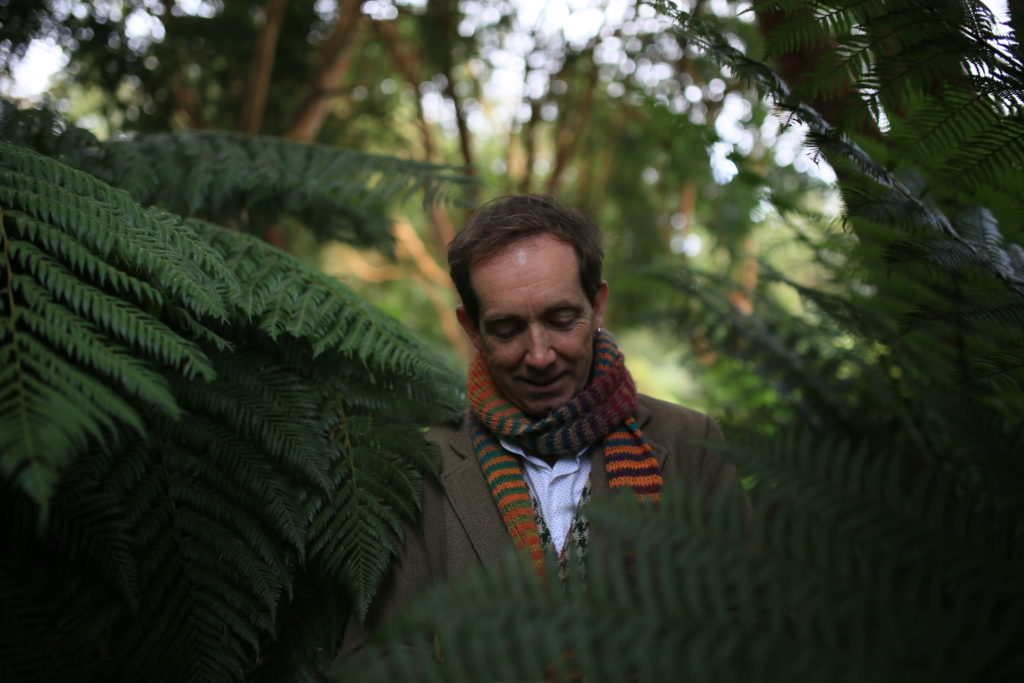
Dave Murphy. Photo: Maarja Urb
What was your first experience with music?
I honestly can’t remember, it just seems to have always been there, like rain, sunshine or the wind.
How was a musician born in you? What was your process of becoming a musician? How did you find your instrument/instrument your talent in singing?
I’m not quite sure, but I remember an old piano player who went to visit London and brought me a gift of a tin whistle. The day he gave it to me I felt suddenly very inspired and went to a charity shop and bought an old record for some pennies, took it home and listened to each track until I heard one which I just started to learn there and then… some hours later I could play it… and then I just didn’t stop. The tune was “The March of the King of Laois”.
What is special for you in Irish traditional music?
It is just like slipping into a familiar river that you’ve always known… sometimes you swim with the current, sometimes against it… mostly I just like to float and look up at the sky… when music is playing itself out and I am the singer or player, then I don’t have to think or be anywhere else in my mind, body or spirit… at those moments I am a musician.
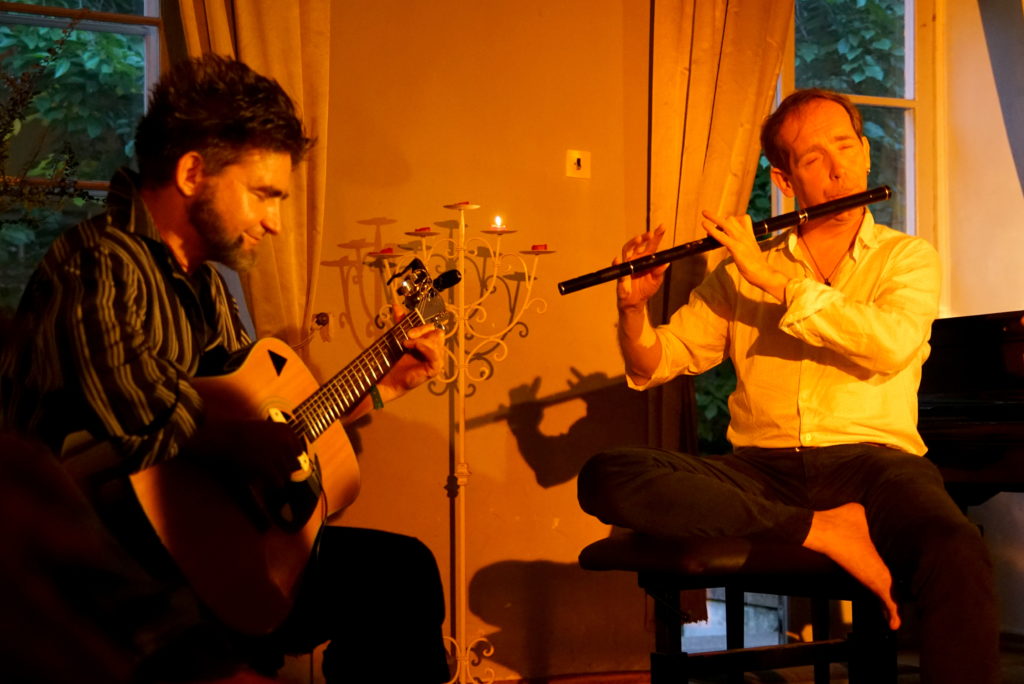
Jaak Johanson and Dave Murphy at Vanalinna Muusikamaja in 2017. Photo: Aive Sarapuu
What have been your most beautiful experiences or special moments as a musician? What have been the worst?
Playing together with others is a magical thing, having meaningful communication without the need for words. Some of the most beautiful experiences occurred on the edges of the music where the instruments have been packed away, the event is over but the ‘just being’ is very strong.
A funny story that comes in mind when you think about experiences with concert organisers, festivals, being on stage?… 🙂
Last summer Viljandi Folk sent someone to collect me from the airport, but they hadn’t told me… so when my escort arrived to get me, I had already disappeared into the Estonian wilderness. Seemingly this caused much confusion and some laughter too.
Many years ago, coming from a concert late in the night in Northern Sweden, when someone opened the door of our minibus a little too roughly, it fell off into the snow… it was funny when we were back at the hotel later, at the time not so much.
What is music for you and who is a musician?
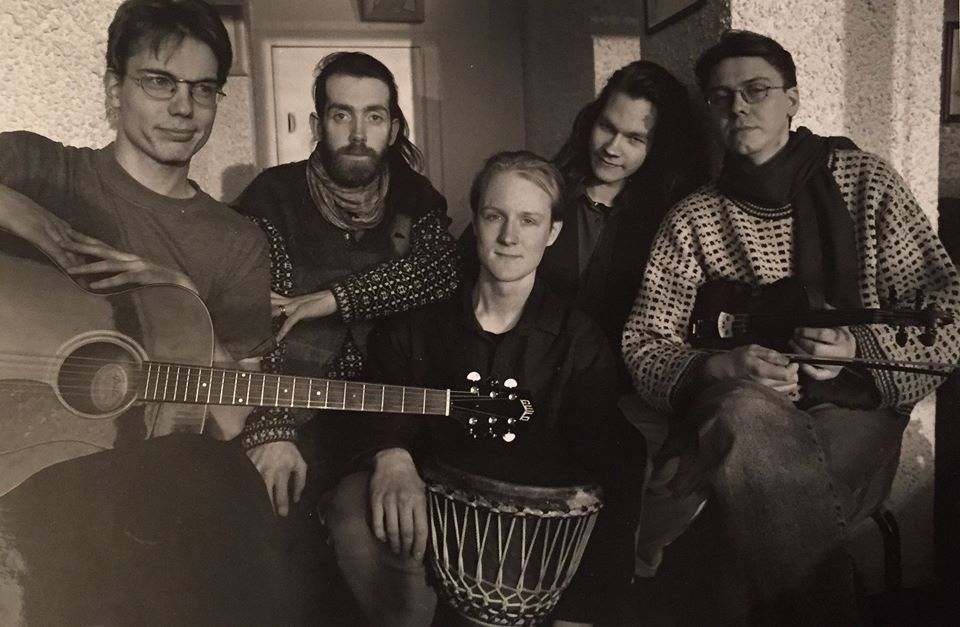
Jyrki Koivisto and Dave Murphy with their band “Reel Music”. Hotel Torni, Helsinki Finland 1994
What has making music meant for you? What is the value or the cost?
It has by times been wonderfully freeing and joyful, a way of connecting to others and the world directly from the spirit with no need for the brain. The cost can be like having very expensive shoes, it may have taken a lot, time, energy, hard work… it may have left you exhausted… but at least you have very nice shoes.
What would you like to say to young people who dream of being musicians today?
Be musicians, there are enough instruments for everybody… try at least.
What is your dream for the world? I dream of a world where…
That we would care more for others and try to be less selfish.
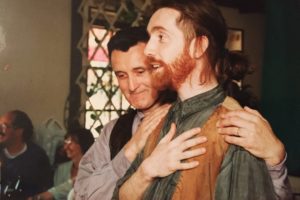
Harry Bent and Dave Murphy at Kloostri Ait (Tallinn) in 1992 or 1993
I trained as a weaver when I was young, then studied sound engineering. I like working in audio engineering, but I could also have happily been a carpenter or shoemaker I think.
Depends how far I could turn it back… perhaps I would have run away with the circus when I was a small boy. If one thing is changed, everything has changed, so who knows?
What is the most precious gift that life has given you?
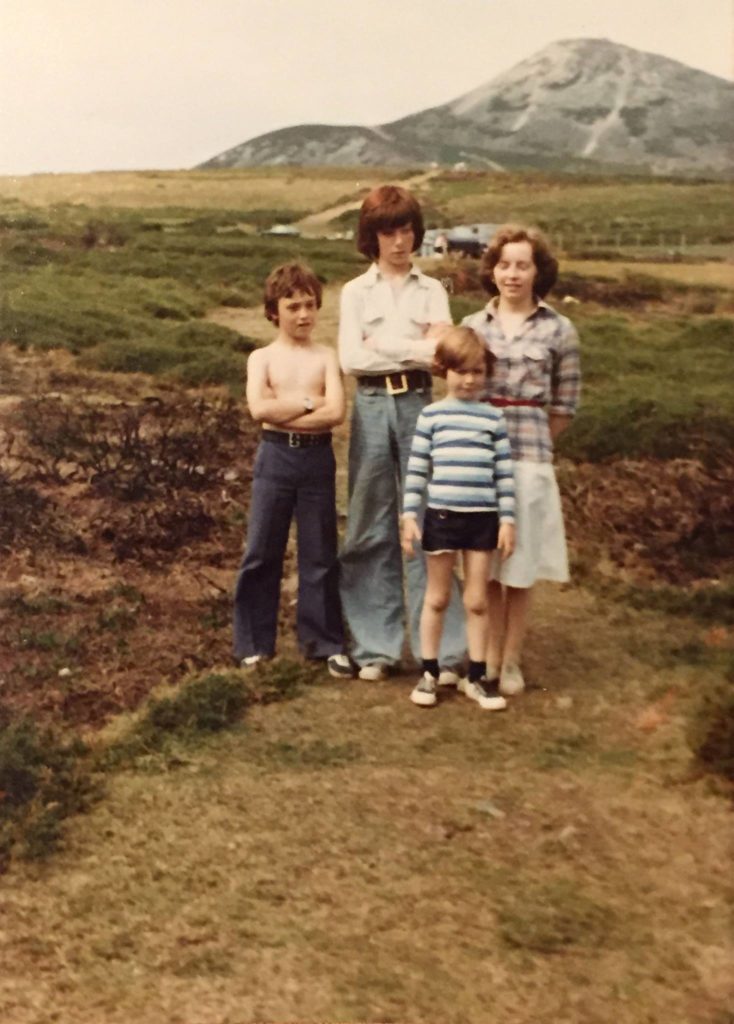
Dave Murphy with his sister, brother and cousin. Sugarloaf Mountain, mid 70’s
Good people.
How was it like in the old days? How were the festivals? What was making folk music about?
When I started playing we just learned tunes from other musicians, I think everyone I knew was basically self taught on their instrument, so there was huge variety in skill level and musicianship, but those who carried the musician gene progressed as they put more time and effort into it… however because there was no central source e.g. CD’s to learn from and most people never learned to read music notation, everyone really developed their own personal style… I feel that after Cd’s became plentiful and then the internet, that the music became quite homogenised… there were still standout players, but less variation.
I always liked festivals when they were just starting out before they became too big, the distance between the musicians and the audience is much smaller so it has the opportunity to develop a more intimate bond and connection between people. Big festivals are huge fun too, it’s a different animal.